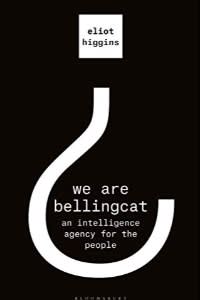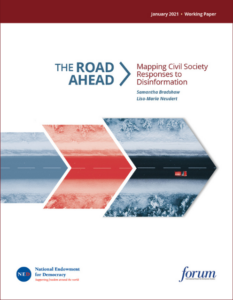 The feats of Bellingcat – the ‘people’s intelligence agency’ – are remarkable, the FT’s Henry Mance writes:
The feats of Bellingcat – the ‘people’s intelligence agency’ – are remarkable, the FT’s Henry Mance writes:
They proved that Syria’s regime used chemical weapons against its citizens. They unmasked the Russian “kill teams” who poisoned defector Sergei Skripal and opposition leader Alexei Navalny. Vladimir Putin has changed the law to try to stop similar embarrassments. The past decade — from the collapse of the Arab spring to QAnon — led many people to despair……[Bellingcat founder Eliot] Higgins calls his non-profit outfit “an intelligence agency for the people”. In his new memoir, We Are Bellingcat, he writes, “This is only the start.”
“We’re sitting on the precipice of the misinformation age: from the information age to the misinformation age,” he says, with quiet, precise urgency.
Bellingcat’s exposure, using open-source digital data, that Navalny had been followed for years by FSB agents, was another embarrassment to the regime, notes Carl Gershman, President of the National Endowment for Democracy (NED), the Washington-based democracy assistance group.
 Civil society organizations (CSOs) play a central role in addressing disinformation’s growing impact on democracy, according to a new working paper from the NED’s International Forum for Democratic Studies. Given the vast scope of the global disinformation challenge, the landscape for CSOs working in this space has evolved rapidly in recent years, Samantha Bradshaw and Lisa-Maria Neudert write in “The Road Ahead: Mapping Civil Society Responses to Disinformation:”
Civil society organizations (CSOs) play a central role in addressing disinformation’s growing impact on democracy, according to a new working paper from the NED’s International Forum for Democratic Studies. Given the vast scope of the global disinformation challenge, the landscape for CSOs working in this space has evolved rapidly in recent years, Samantha Bradshaw and Lisa-Maria Neudert write in “The Road Ahead: Mapping Civil Society Responses to Disinformation:”
Established efforts to combat disinformation have incorporated the new challenges posed by social media into their agendas, while new initiatives have emerged to fill gaps in research, monitoring, and advocacy, they observe. The work of these organizations in the disinformation fight is critical for positively shaping policy making, improving platform responses, and enhancing citizen knowledge and engagement.
Yet, CSOs face ongoing challenges in this complex and fast-changing field. How has civil society grown in its understanding and response to the digital disinformation challenge and what should be done to further empower this work? Bradshaw and Neudert ask. RTWT
The fight against disinformation with Renée DiResta is one of several items from the Freeman-Spogli Institute’s World Class podcast recommended by Stanford’s Michael McFaul, including his interviews on the Biden administration’s approach to U.S.-Russia relations with Amb. Steven Pifer, what a Biden presidency means for U.S.-China relations with Oriana Skylar Mastro, how China’s rural population will influence its economic future with Scott Rozelle, amongst others.
Bellingcat’s Eliot Higgins: ‘We’re on the precipice of the misinformation age’ https://t.co/j6eLIoN9I2 via @financialtimes
— Democracy Digest (@demdigest) January 29, 2021







